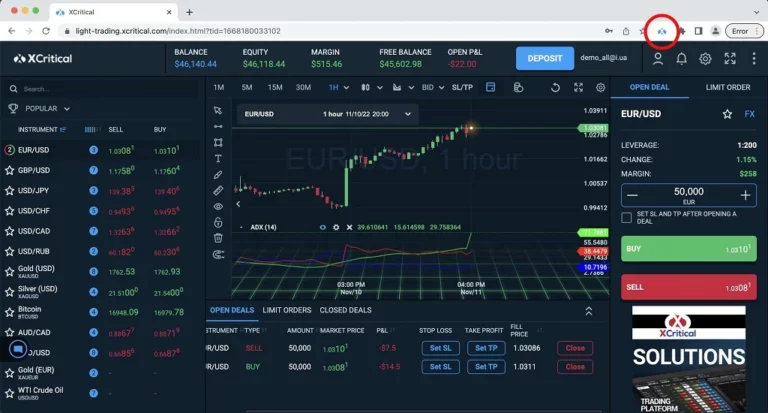Content
In addition, the total fees charged will be higher due to the association of the custodian. Sometimes, wallets that are constantly upgrading to meet the demands of their users might support more tokens as time goes by. For instance, Ceffu currently supports BTC, ETH, BCH, LTC, BUSD, BNB, CAKE, and many other ERC-20 tokens. When using custodial services, make sure you choose a reliable company that offers high security and insurance coverage. There have also been instances of crypto inheritance being Anti-Money Laundering (AML) unretrievable because the private keys were held by the original crypto owner alone. You can prevent such incidents from happening by sharing access to your assets with a custodian.

Custodial Wallets vs Non-Custodial Wallets: Control or Convenience?
Self-custody wallets are a suitable option for users who prefer long-term holding and who want full responsibility for their private keys. You can also use both custodial and non-custodial wallets for different use cases. For example, you can use custodial wallets to engage in campaigns, promotions, and other opportunities offered by exchanges. Non-custodial wallets are useful for the rest of DeFi — think airdrops, DEX trading, etc. Note that, while self-custody of funds is https://www.xcritical.com/ mathematically more secure due to the underlying cryptography, you have to take precautions. Just like how you’d protect your email password or ATM pin, you should also protect your wallets’ private keys from prying eyes.

Key Differences Between Self Custody and Custodial Wallets
- The custodial parent is the one who has physical custody of the child and is responsible for the day-to-day care and upbringing.
- Even though they can be trickier for newbies, they let seasoned users tweak settings to their liking.
- But they work at a higher level of authority and complexity because you have to manage your keys and your funds personally.
- A typical feature of non-custodial storage is the ability to export your private keys.
- They are often more user-friendly and ideal for beginners in the crypto world due to their intuitive interfaces and easy-to-use features.
Some, like Coinbase, do offer separate standalone non-custodial wallet apps. The familiarity of popular exchanges could play a factor in deciding the right kind of wallet for you if you’re already comfortable using one exchange or another. Some crypto custodians also have other requirements that you may not qualify for. For instance, Ceffu is a custodial service provider that only onboards corporate custodial vs non custodial wallet users at the moment. You will need a non-custodial wallet when interacting with a decentralized exchange (DEX) or decentralized application (DApp). Uniswap, SushiSwap, PancakeSwap, and QuickSwa are popular examples of decentralized exchanges that require a non-custodial wallet.
What is the difference between a custodial and non custodial wallet?
Among other things, a crypto wallet is made up of two main components – a public key and a private key. Fireblocks non-custodial wallets can be used in parallel with self custodial wallets. With a custodial wallet, a third party stores and manages a user’s private keys. With a non-custodial wallet, the user must store and manage their private keys on their own. With a custodial wallet, every transaction requires approval from the central exchange. The transaction history is also not recorded on the underlying blockchain in real-time, and transaction costs are typically higher due to the involvement of custodians and other intermediaries.
It is important to keep this information safe to recover your assets in case you lose your wallet password. Most users, especially beginners, prefer to use a custodial wallet as managing private keys is difficult for them. Moreover, losing the private keys to the wallet results in the permanent loss of the stored crypto assets. Discover the differences, pros, and cons of each to find the best blockchain wallet for your needs. There are several different types of crypto wallets to choose from, but the two main varieties can be broken out as custodial wallets and non-custodial wallets.
Some of these include Trust Wallet, Electrum, Exodus, Edge Wallet, Blockchain.com and MetaMask. Your private key, however, should be treated as a confidential password because it signs transactions and provides access to your funds. As long as you keep your private key safe, you will be able to access your crypto from any device. A crypto wallet is a tool that allows you to interact with a blockchain network. Among other things, you can use it to send and receive cryptocurrencies or access decentralized applications (DApps). If you are searching for a credible blockchain development service provider, contact Peiko.
If by chance you lose them or forget the seed phrase, there’s a real risk you could be locked out from your cash forever. That’s why it’s super important to make sure these are stored safely somewhere and backed up well. For folks who use these kinds of wallets, staying sharp about sneaky dangers like phishing scams or harmful software is key because they can put your private keys at risk.
While “being your own bank” brings a lot of benefits, it can be inconvenient and even risky for less experienced users. If your private keys get compromised or lost, you will lose access to your crypto assets permanently. Blockchain analysis reports suggest that over 3 million BTC might be lost forever. The main difference between custodial and non custodial wallet lies in who controls the private keys. In custodial wallets, a third party manages the keys, while in non-custodial wallets, users are responsible for full control. A custodial wallet is a type of cryptocurrency wallet where a third party holds the private keys on behalf of the user, providing custody of the funds.
First off, it’s crucial to do your homework and pick a service provider that’s both trustworthy and dependable. You should go for custodial wallets that stick to the rules already set up and have strong security measures. When picking a wallet, it’s really important to think about how you can back up and get your stuff back if needed. With custodial wallets, there’s usually a way to fix things if you lose access. You just reach out to the folks who help customers because they keep your private key safe for you.
Some wallets also offer the option of storing and transferring NFTs, which are non-fungible tokens issued on a blockchain. If you need help with any blockchain or software creation services like SaaS development services, for example, turn to Peiko, and we will create a top solution for you. If you are searching for a blockchain wallet creation firm, Peiko can help. We have extensive experience in blockchain technologies, wallet development, and related areas. For a custodial wallet establishment, a Web3 founder should be very aware of the comprehensive–and sometimes extensive–list of requirements about the jurisdiction where they wish to incorporate.
There are pros and cons for both types of wallets, so weigh your comfort level with the features that matter most to you before deciding. You’ll also want to consider the perks each wallet offers, like crypto debit or credit cards, staking opportunities, cashback rewards and the variety of coins supported. Custodial wallet services are provided by cryptocurrency exchanges such as Kraken and Coinbase, wherein a third party manages your private keys and, consequently, your cryptocurrency holdings. Conversely, in a non-custodial wallet like the BitPay Wallet, only users can access their private keys, ensuring complete control over their assets. A non-custodial crypto wallet is one in which only the holder can access and control the private keys. Non-custodial wallets are the best option for users who want complete control over their funds.
A popular non-custodial software wallet designed for interacting with decentralized applications (DApps) on the Ethereum blockchain. KuCoin offers users access to 700+ cryptocurrencies, with almost all having top-tier liquidity. Last but not least, the exchange allows unverified users to enjoy a withdrawal limit of up to 1 BTC per day and trade futures up to 5x leverage. On the other hand, once they decide to go through the KYC process, their limits increase exponentially.
Some wallets also allow you to store and transfer non-fungible tokens (NFTs) issued on a blockchain. No matter what decision you make, make sure to always adhere to the best security measures, as this is the ultimate goal of any digital wallet. If the wallet has Transak integrated, then it becomes even more convenient. Users can buy crypto directly from the wallet without having to first go on an exchange and then manually send the coins to the wallet. Consequently, users enjoy faster execution, which usually takes hours or days, depending on network congestion and the exchange’s lengthy KYC process.
Instead, they contain the public key, which lets the user set up transactions, and the private key, which is used to authorise transactions. A non-custodial wallet is a wallet in which you are responsible for storing and managing your private keys. Instead of third parties like crypto exchanges having custodial access, you have full control over your digital assets. Since users control their private keys, non-custodial wallets offer greater security against hacking and unauthorized access. Another popular option we should mention is Exodus — a popular non-custodial desktop wallet that offers support for more than 100 cryptocurrencies. It’s easy to use and has a built-in exchange that allows you to trade between different cryptocurrencies.
Plus, withdraw to your bank account with zero fees when you’re ready to cash out. Examples of non-custodial wallets include Metamask, BitPay, Trust Wallet, Ledger Nano X, Trezor One, Zengo, Edge, Electrum, Exodus, Wasabi, and Phantom. Some examples of custodial wallets are Binance, Free Wallet, BitMex, and Bitgo. Having a private key is essentially what determines your ownership of your digital coins. If someone else has your private key, they can easily transfer your coins without your consent.